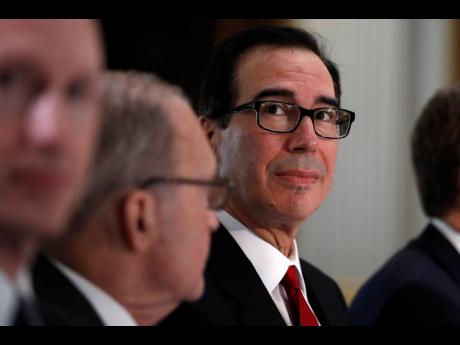Resumption of high-level US-China trade talks raises hopes
WASHINGTON (AP):
The United States (US) and China resumed high-levels talk yesterday aimed at easing a trade standoff that has unnerved global investors and clouded the outlook for the world economy.
The talks opened as a Chinese delegation led by Vice-Premier Liu He sat down with a US team led by Trade Representative Robert Lighthizer and including Treasury Secretary Steven Mnuchin; Commerce Secretary Wilbur Ross; Larry Kudlow, a key White House economic adviser; and Peter Navarro, a White House trade adviser.
The delegations faced each other from opposite sides of a long table in the ornate Indian Treaty Room in the Eisenhower Executive Office Building on the White House grounds. None of the officials commented publicly before journalists were led out of the room.
The world’s two biggest economies are locked in a trade war that President Donald Trump started over allegations that China deploys predatory tactics to try to overtake US technological dominance. Beijing’s unfair tactics, trade analysts agree, include pressuring American companies to hand over trade secrets and, in some cases, stealing them outright.
To try to force China to change its ways, Trump has imposed tariffs on hundreds of billions of US dollars in Chinese goods. Beijing has retaliated with tariffs of its own. China rejects the allegations and complains that Washington’s goal is simply to cripple a rising economic competitor.
The Trump administration has warned that it will escalate its import taxes on US $200 billion in Chinese goods from 10 per cent to 25 per cent if the two sides haven’t reached a resolution by March 2. But Trump in recent days has signalled a willingness to extend the deadline if negotiators are making progress.
The conflict has rattled markets. It’s also fanned uncertainty among businesses that must decide where to invest and whether Trump’s tariffs — which raise the cost of the affected imports — will be in effect long enough to justify replacing Chinese suppliers with those from countries not subject to the tariffs.
The International Monetary Fund, the World Bank and the Organization for Economic Co-operation and Development have all downgraded their forecasts for the global economy, citing the heightened trade tensions.

